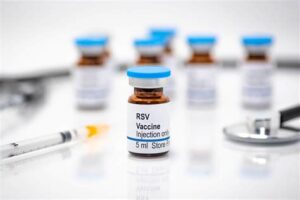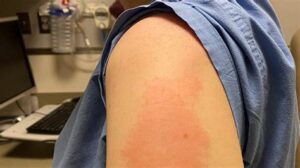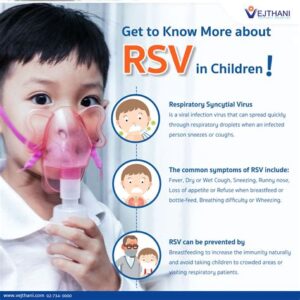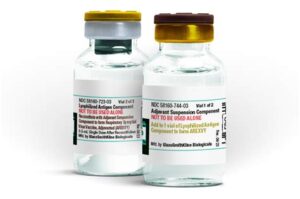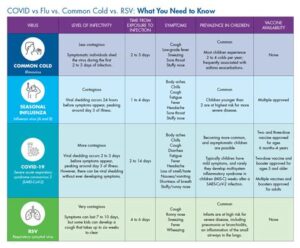Explore the essentials of RSV vaccination, including side effects, serious reactions, precautions, and the importance of consulting a healthcare professional for safe vaccination decisions.As the threat of respiratory syncytial virus (RSV) looms, the importance of vaccination has come to the forefront of health discussions. However, with any medical intervention, understanding the potential side effects is crucial for informed decision-making. This blog post delves into the RSV vaccination, exploring its role in preventing infections, common side effects that some individuals may experience, and the rare but serious reactions that warrant attention. Additionally, we will highlight essential precautions to take and stress the importance of consulting a healthcare professional before making vaccination decisions. By providing clear and comprehensive information, our goal is to empower readers with the knowledge needed to navigate the complexities of RSV vaccination safely.
Understanding RSV Vaccination
The RSV vaccination is designed to protect vulnerable populations, particularly infants and elderly individuals, from respiratory syncytial virus (RSV), which can lead to severe respiratory infections. Understanding the importance of the vaccine is crucial in public health efforts to mitigate the impact of this virus, particularly during peak seasons.
The available vaccines aim to stimulate an immune response, helping the body to quickly recognize and combat the virus if exposed. This is significant, as RSV can lead to serious health complications such as bronchiolitis and pneumonia. Vaccination is an important step in safeguarding both children and adults at risk.
Commonly, the RSV vaccination may cause mild side effects, including tenderness at the injection site, fever, or fatigue. These reactions are generally short-lived and resolve on their own within a few days. However, it’s essential to monitor individuals receiving the vaccination closely for any unusual or severe reactions.
For further guidance regarding the RSV vaccination and its effects, including common and rare side effects, consult with a healthcare professional who can provide ta
Common Side Effects
The RSV vaccination has been a crucial advancement in preventing respiratory syncytial virus infection, especially in vulnerable populations such as infants and the elderly. While most individuals experience minimal effects from the vaccination, it is essential to be aware of the common side effects that may occur.
- Pain at the injection site: Many people experience discomfort, swelling, or redness where the shot was given.
- Fever: A mild fever may develop as the body’s immune response is activated.
- Fatigue: Tiredness or lethargy is a common post-vaccination response.
- Headache: Some individuals report experiencing headaches after receiving the vaccine.
These side effects are generally mild and resolve on their own within a few days. It is advisable to monitor any symptoms after vaccination and consult a healthcare professional if they persist or worsen.
Understanding these common side effects can help alleviate concerns and encourage more individuals to get vaccinated against RSV,
Rare but Serious Reactions
The RSV vaccination is generally well-tolerated, but like any medical intervention, it can have rare but serious side effects. Although the likelihood of experiencing such reactions is minimal, understanding them is crucial for informed decision-making about vaccination.
One of the most concerning rare reactions is anaphylaxis, a severe allergic reaction that can occur shortly after vaccination. Symptoms may include difficulty breathing, rapid heartbeat, and swelling of the face or throat. It is essential for recipients to remain in the healthcare setting for monitoring for a short period after vaccination.
Other potential serious reactions can include neurological disorders such as Guillain-Barré syndrome, although these occurrences have been rare. Medical professionals recommend that anyone who experiences unusual symptoms after receiving the RSV vaccine should seek medical attention immediately.
| Rare Reaction | Symptoms | Action |
|---|---|---|
| Anaphylaxis | Difficulty breathing, rapid heartbeat, swelling | Seek emergency medical help |
| Guillain-Barré syndrome | Weakness and tingling in the limbs | Consult a healthcare professional |
Precautions and Prevention
Respiratory Syncytial Virus (RSV) is a significant cause of respiratory illness in young children and vulnerable adults. Understanding the precautions and prevention strategies can significantly reduce the risk of RSV infection.
- Practice good hygiene by washing hands frequently with soap and water, especially after being in crowded places or caring for sick individuals.
- Avoid close contact with individuals who are ill, especially those exhibiting symptoms of a cold or flu.
- Keep infants away from larger groups of people, particularly during RSV season, to minimize exposure.
In high-risk populations, such as premature infants or children with underlying health conditions, RSV vaccination is advised. It’s essential to follow vaccination schedules and consult with a healthcare professional regarding the best preventive measures. Always keep t
Consulting a Healthcare Professional
When it comes to Respiratory Syncytial Virus (RSV) vaccination, seeking guidance from a healthcare professional is crucial. Doctors can provide personalized advice based on your individual health profile, ensuring that you are well-informed about the vaccination process and its implications. It’s important to discuss any pre-existing conditions or allergies that may affect your suitability for the vaccine.
During the consultation, you should inquire about the common side effects associated with the RSV vaccine. Typical side effects may include mild reactions such as pain at the injection site, low-grade fever, or fatigue. Understanding these can help set your expectations post-vaccination.
Furthermore, you should ensure that you are aware of any rare but serious reactions that could occur. While these instances are unusual, discussing them with your doctor helps you weigh the benefits and risks of getting vaccinated. Your healthcare professional is also a reliable source for information on precautions and preventative measures you can take befor
Frequently Asked Questions
What is the RSV vaccination?
The RSV vaccination is designed to protect against respiratory syncytial virus (RSV), a virus that can cause severe respiratory infections, especially in infants and older adults.
What are the common side effects of the RSV vaccination?
Common side effects may include pain at the injection site, mild fever, irritability, and fatigue.
Are there any serious side effects associated with the RSV vaccination?
Serious side effects are rare but can include allergic reactions or other severe immune responses.
How does the RSV vaccination work?
The vaccination works by stimulating the immune system to recognize and fight RSV, thus providing protection against future infections.
Who should get the RSV vaccination?
The RSV vaccination is typically recommended for high-risk groups, including infants, young children, and older adults with compromised immune systems.
Can anyone receive the RSV vaccination?
While most people can safely receive the vaccination, individuals with certain health conditions or allergies should consult a healthcare provider before vaccination.
How effective is the RSV vaccination in preventing infection?
The effectiveness of the RSV vaccination can vary, but studies show that it significantly reduces the risk of severe RSV infection in vaccinated populations.
